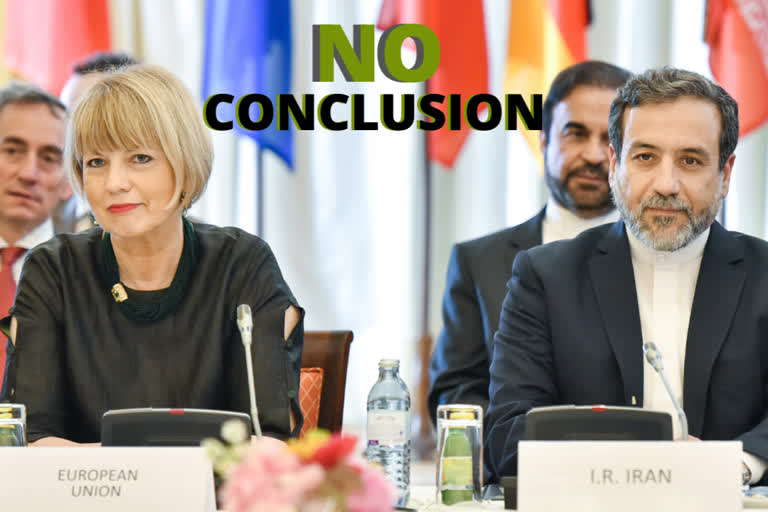Vienna: The latest attempt to save a nuclear deal that limits Iran's capacity to build atomic weapons ended without any progress being made on Wednesday.
At a summit of high ranking officials from China, Germany, Russia, the UK and France in Vienna, Iran insisted that it was willing to meet the commitments of the deal if the European Union compensates Tehran for the sanctions imposed by the United States when it withdrew from the pact in 2018.
No progress made on Iran nuclear deal as parties meet. The summit was held as an attempt to save the dying deal which is in danger of collapsing under the pressure exerted by Washington on Iran which has relaunched key parts of its atomic weapons program since the US pulled out of the agreement two years ago.
A timeline of the event that escalated US-Iran tensions. "We are discussing with the other participants how to save this deal, how to ensure Iran's reverse to full compliance, in return for economic benefits of this deal," Iran's deputy foreign minister Abbas Araqchi said.
Iran argues that the sanctions that were reimposed by the US after it pulled out of the deal have cancelled out the economic benefits that were guaranteed under the deal, primarily its inability to export oil, one of the pillars of its economy.
Tehran has accused the EU of not compensating for the US sanctions, but Araqchi said that in Wednesday's meeting, the Europeans showed their willingness to strengthen "Instex", the mechanism created to overcome the US sanctions.
Read Also:Syrian troops capture more areas in last rebel stronghold
Meanwhile, China warned that the international community is facing a race against the clock to save the deal and blamed the impasse on the US and its sanctions against Iran.
Donald Trump pulled the US out of the agreement in 2018 which had been negotiated by his predecessor Barack Obama and reimposed sanctions to pressurise Iran into signing a better deal.
"The participants are racing against the clock to work out specific solutions to safeguard the Joint Comprehensive Plan Of Action (JCPOA), the official name of the deal) to ensure that not only Iran but also other partners, all re-embark on the process of implementation of the deal," said Wang Qun, China's permanent representative to Vienna. He was attending in place of China's Director-General of the Department of Arms Control of the Ministry of Foreign Affairs Fu Cong who could not travel due to the coronavirus outbreak.
Qun added that the possibility of implementing the EU's dispute resolution mechanism was not an answer at this stage and that the issue had not been included on the agenda.
Read Also:Iran's deputy health minister says he has coronavirus
Wednesday's summit was the first since Germany, the UK and France - the European signatories of the deal - announced in January the activation of the dispute resolution mechanism in the JCPOA after learning that Iran was violating the terms of the agreement.
That mechanism allows for an initial term of 35 days which can be extended to find a solution.
In case a resolution cannot be reached, the issue would be sent to the United Nations Security Council which could ultimately reimpose the economic sanctions that weighed against Iran when the agreement was signed five years ago.
Araqchi said that all of the countries still following the deal had reaffirmed their support for the agreement which, when it was signed, was seen as a successful example of diplomacy and multilateralism to resolve international disputes and conflicts.
"It is important that we can say that the JCPOA is still alive," he said.
Read Also:Iran president slams US for spreading 'fear' over virus
(With inputs from IANS)
